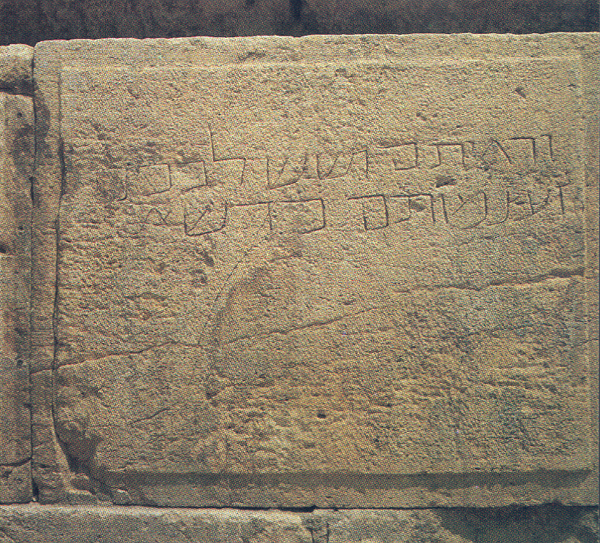Image Details

Garo Nalbandian
A Jubilant Jewish Artisan roughly inscribed a quotation from Isaiah 66:14 on the western wall of the Temple Mount: “When you see this, your heart shall rejoice, and your bodies shall flourish like the grass.”
Among the forms of worship admired by the Emperor Julian was the ancient religion of the Jews. His letters refer to his plans to rebuild the Jewish Temple in Jerusalem—one of many temples Julian intended to restore in tribute to his ever-expanding pagan pantheon. The restoration project was probably begun but was brought to an early end by Julian’s death.
This inscription, expressing joy that the Temple might stand once again, may have survived from that project. One word in the inscription differs from the biblical text, however: Instead of Isaiah’s “your bodies,” it reads “their bodies.” Isaiah has been interpreted to refer to the End of Days, which entails the restoration of the Temple and the resurrection of the dead. The change in the wording of the inscription was apparently meant to suggest that “you” who see the restored Temple shall rejoice, while “they” who do not see—and whose bodies lie buried—shall arise.
